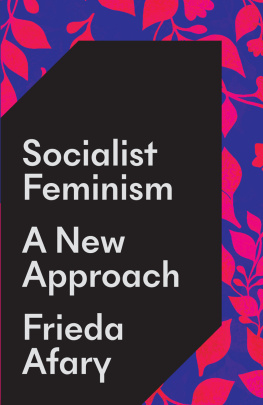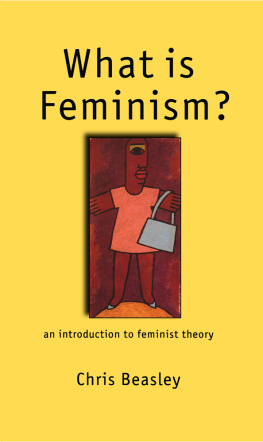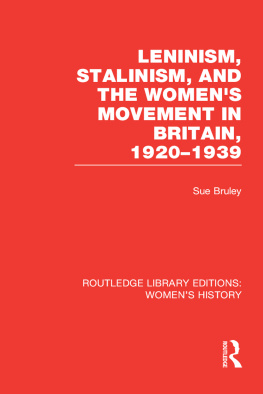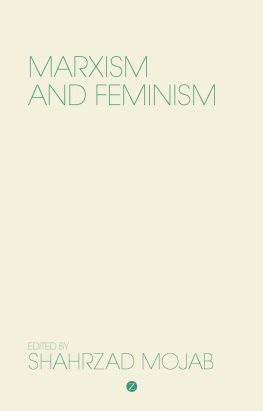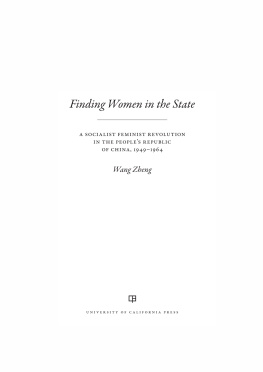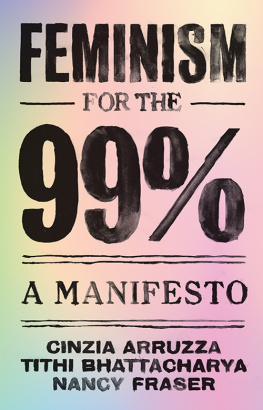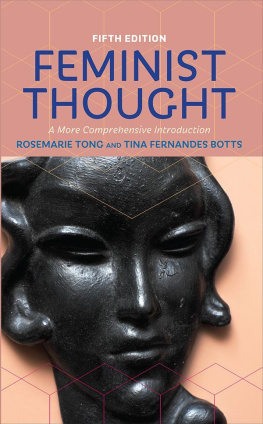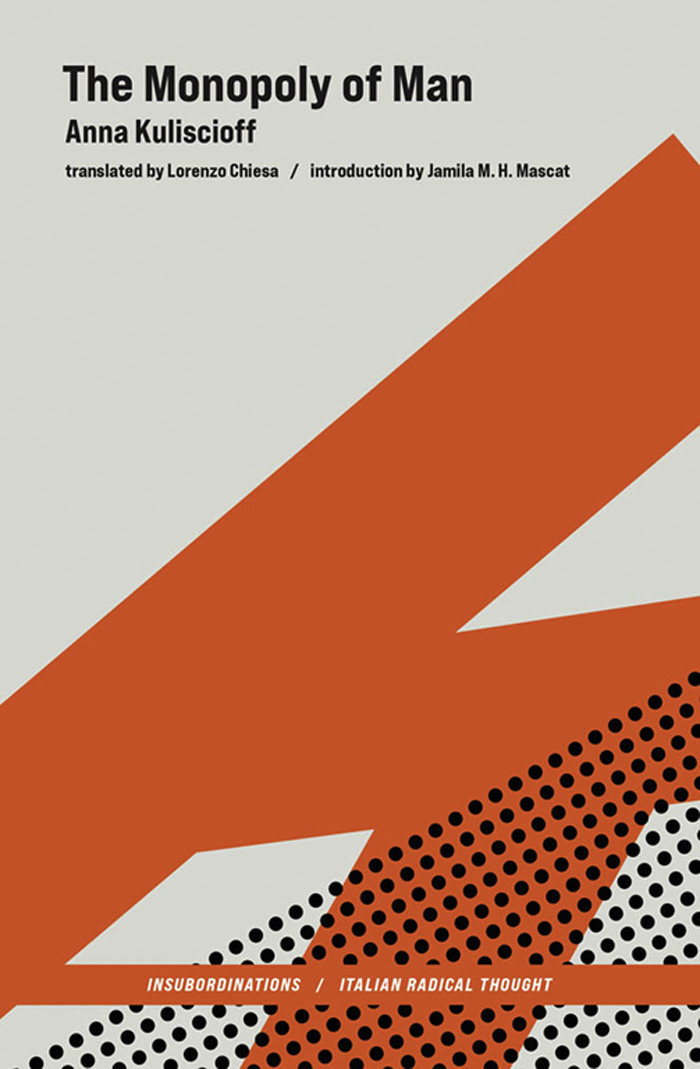INSUBORDINATIONS/ITALIAN RADICAL THOUGHT
Lorenzo Chiesa, series editor
The Monopoly of Man, Anna Kuliscioff
2021 Massachusetts Institute of Technology
All rights reserved. No part of this book may be reproduced in any form by any electronic or mechanical means (including photocopying, recording, or information storage and retrieval) without permission in writing from the publisher.
This book was set in Arnhem Pro and Bebas Neue Pro by The MIT Press.
Library of Congress Cataloging-in-Publication Data
Names: Kuliscioff, Anna, 18541925, author. | Mascat, Jamila M. H., writer of introduction. | Chiesa, Lorenzo, translator.
Title: The monopoly of man / Anna Kuliscioff; introduction by Jamila Mascat; translated by Lorenzo Chiesa.
Other titles: Il monopolio delluomo. English
Description: Cambridge, Massachusetts : The MIT Press, [2021] | Series: Insubordinations: Italian radical thought
Identifiers: LCCN 2020011239 | ISBN 9780262045391 (hardcover)
Subjects: LCSH: WomenSocial conditions. | WomenEconomic conditions. | Women's rights. | Women in the professions. | Socialist feminism.
Classification: LCC HQ1236 .K85 2021 | DDC 305.4dc23
LC record available at https://lccn.loc.gov/2020011239
10987654321
d_r0
Contents
Guide
Series Foreword
Insubordinations are creative and innovative double negations. They occur when an existing negative condition, the state of being sub or under a given order and thereby having an inferior rank, is countered by negating this very subjection. In our current late-capitalist predicament such a reversal acquires a more complex meaning. The ordering authority is in fact no longer simply in crisis and exposed to resistance but profoundly disordered in its own operative structure. Today, powers traditionally devoted to regulation perpetuate and reinforce their effectiveness by continuously deregulating themselves. Orders become more and more oppressive precisely as they unveil the inconsistency on which they rest. As Pier Paolo Pasolini presciently put it almost fifty years ago, by now, nothing is more anarchic than power. In this desolate scenario, actual insubordination cannot but arise as the tentative search for a new kind of order. Its long-term and admittedly ambitious mission is the establishment of a society without subordinates, called communism. Its first and more realistic task is a taxonomic critique of an Order that resolves itself into myriad conflicting, yet no less tyrannical, suborders.
The present series aims to dissect the contemporary variant of the double negation involved in insubordination through the privileged prism of Italian radical thought. Starting from the late 1970s, Italy emerged as a laboratory for test-piloting the administration of the state of exception we are now living on a planetary level, both geopolitically and in our everyday lives. A brutal repression put an abrupt end to an intense season of social and political emancipations. But the theoretical elaboration of that defeat, which should not be confused with a grieving process, has managed to promote Italian radical thought to the center of a series of international debates that endeavor to define a new function and field of revolutionary politics. The series moves from the assumption that while so-called Italian Theory remains a vague and awkward category and attempts at hegemonizing it run the risk of resurrecting the idea of a national philosophy, it is beyond doubt that a growing number of left-wing Italian authors have, for good reasons, become very popular worldwide.
Drawing on philosophy, political theory, psychoanalysis, architecture, art history, anthropology, sociology, economics, and other fields, this interdisciplinary series intends to both further investigate consolidated Italian theories of emancipation and introduce authors (both present and past) who still remain largely unknown among Anglophone readers. Insubordinations: Italian Radical Thought will also foster original critical readings that pinpoint the tensions inherent to the oeuvre of prominent progressive thinkers and develop novel dialogues with various strands of postWorld War II militant thought (such as heterodox Marxism, biopolitical theory, feminism of difference, social psychoanalysis, antipsychiatry, and theories of fascism). The series will also translate works by seminal earlier Italian authors who may be regarded as forerunners or critics avant la lettre of current trends in Italian radical thought.
It is my hope that, by delving into the titles of this series, readers will be able to appreciate the disciplined indiscipline they all share.
Lorenzo Chiesa
Introduction: Portrait of a Socialist Lady
Jamila M. H. Mascat
A Revolutionary Reformist: Kuliscioff and the Birth of Italian Socialism
Born Anja Rozenstein to a wealthy family of Jewish merchants in Simferopol (Crimea) around 1854, Kuliscioff left Russia in 1871 to enroll in the Polytechnic of Zurich, where she was initiated in the exact sciences and also took philosophy classes. Influenced by nihilism like most of the educated Russian youth of her generation, Kuliscioff sharpened her rebellious temper in the Bakunian circles of anarchist students in Switzerland. In 1873 she married the young Russian anarchist Piotr Makarevic, with whom she moved to Odessa following a tsarist decree that forced all students abroad to return to Russia. Together they joined in the fight against the despotic regime of Alexander II as members of the populist group of the ajkovcy (Circle of Tchaikovsky). A year later Makarevic was arrested and sent to Siberia, while Kuliscioff managed to reach Kiev, where she lived underground and joined the Buntari, an insurgent organization inspired by Bakunian ideas that was working to spark a peasants revolution in the region. After a bench warrant was issued against her for instigating sedition in 1877, Kuliscioff fled Russia and reached Lugano. There she finally changed her last name from Rozenstein to Kuliscioff, as a tribute to coolie workers (Kuli in German).
Back in Switzerland, she became acquainted with such major representatives of European socialism as August Bebel, Jules Guesde, and Wilhelm Liebknecht, and established friendships with revolutionary compatriots such as Georgi Plekhanov, Lev Deutsch, Pavel Axelrod, and Vera Zasulich, who in 1883 founded Emancipation of Labour, the first Russian Marxist group.
In 1882, soon after giving birth to their daughter Andreina, Kuliscioff left Imola, the Italian town where she had lived in Costa's house since the previous year, and returned to Bern, where she took up the study of medicine. The irreversible crisis in the relationship with Costa coincided with considerable hardship: Kuliscioff was pursuing her medical studies between the universities of Naples and Pavia while caring for her daughter alone, on a very small income and suffering from the tuberculosis she had contracted while imprisoned in Florence in 1878. Despite these arduous circumstances, in 1886 she finally became the first woman in Italy to graduate from the Faculty of Medicine at the University of Naples, with a thesis on the bacterial origin of puerperal fever. About two years later, having trained as an obstetrician and gynecologist between Turin and Padua, Kuliscioff started her practice at a charity clinic in Milan, where she became known as la dottora dei poveri (the poor people's doctor). Unfortunately, worsening health conditions forced her to give up her profession in 1895. From that point on, she devoted her life entirely to politics.


